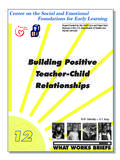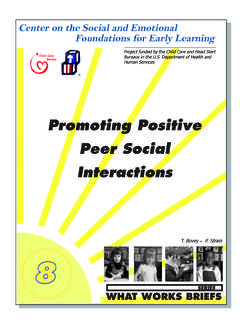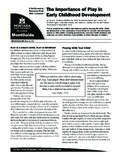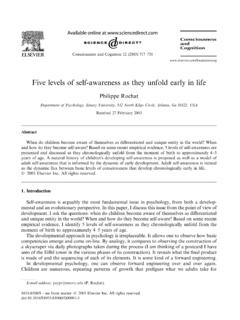Transcription of Helping Children Develop Healthy Sexual Behavior and …
1 IntroductionAfter seeing two teenagers kissing passionately in a park, your five year-old son looks up and asks you, "Mommy, why are they sexing?" Or, your ten year-old daughter comes to you visibly upset and discloses to you that one of her fifth grade classmates said to her during recess, "You really make my _ _ _ _ (penis) hard." Or, you overhear one of your thirteen year-old daughter's friends telling her, "So-and-so is giving out _ _ _ _ (oral sex) to all the boys!" Or, you read in the newspaper that police showed up at a school because a third grade boy was caught touching and attempting to sodomize a female classmate.
2 You can't help but be astounded by how much Sexual awareness there is among young people today. Even if you think your own child is innocent and sheltered from Sexual talk and experiences, you can't get over what you see and hear about what the "other" kids are have changed considerably. I've been involved in public school sex education for over twenty years, yet I am amazed at the significant numbers of Children who express sexualized behaviors at younger and younger ages. As a whole, they seem to be genuinely more interested in sex, as if their curiosity about sex has been ratcheted up several notches.
3 For parents, the days of postponing any discussion about intimate sex with your kids until they become teenagers are long gone. Today, if you haven't discussed the biological, psychological and moral implications of Sexual relations with your kids by the time they've entered middle school, make a change quickly!What factors influence the sexualization of Children ?1We live in a sexually potent environment. Before a child even reaches puberty, he or she has likely been exposed to thousands of Sexual messages. Moreover, many of these messages are very explicit, sensational, violent, and lack any mention of the importance of emotional commitment in Sexual relationships.
4 We know that when Children are exposed to excessive amounts of Sexual stimuli, particularly at early ages when it can be confusing and incomprehensible, there is the potential for negative behaviors to exposure to Sexual stimuli can result in sexualized bullies. Children who bully are also being bombarded by Sexual stimuli. It makes sense that a percentage of these bullies will learn to incorporate Sexual harm as part of their bullying tactics. This also raises the question, "Are we cultivating more Sexual abusers and offenders as a result?" I have been particularly alarmed at the unusually high number of cases of young Children who sexually hurt other Children in our public schools.
5 When we begin to see an inordinate number of elementary school Children who act sexually aggressive, as I have from my position as Director of Health Services in a school district, red flags need to be 88,000 Children were sexually abused in the United States in 2000. It is generally accepted that 1 in 4 females and 1 in 6 males will be sexually abused, assaulted, or raped before age 18. Many Children who have been sexually abused will display Kaeser, F. (2002). Helping Children Develop Healthy Sexual Behavior and attitudes. New York University Child Study Center, Children Develop Healthy Sexual Behavior and Attitudesby Fred Kaeser, , Director of Health Services for Community School District Two, NYCproblematic Sexual behaviors.
6 Although not a majority, many will also grow up to become abusers majority of parents do not communicate with their kids about sex, and when they do it is usually not enough. From an empirical standpoint, we know that many parents in the United States have difficulty speaking to their Children about Sexual issues. We also know that even when parents think they communicate well, their Children frequently tell us it's not enough. Poor parent-child communication only hinders the child's ability to understand Sexual matters. The good news is that when parents do communicate well, the results can be profound.
7 In families where effective communication occurs, research shows Children are less likely to experience intercourse, pregnancy, and sexually transmitted to kids about Sexual issuesAs a parent, you routinely monitor and provide for your child's physical health. When your child has a fever you don't hesitate to take her temperature every couple of hours. Constant monitoring lets you know how she's feeling and whether or not things are getting better. As your child's Sexual educator and counselor, you should utilize a similar approach. You need to check with your child on a regular basis about what she or he is seeing, hearing and wondering about sex.
8 You also need to stay informed about what information the "experts" recommend you should discuss with your Children at what ages, as well as be clear about what values and moral messages about sex you will impart to your need to communicate the right type of information; not just the technical aspects of Sexual Behavior , but also the guidance necessary for managing peer pressure. The following topics should be part of the You're either tolerant or against it. If you're tolerant, make sure that your child understands he/she has your permission to masturbate. More likely than not, your first opportunity to do this will be during a teachable moment - when you find your child stimulating his/her genitals which can be quite typical at about four, five, six years of age.
9 Your response might be, "I see you rubbing your penis/vagina. Does that make you feel good? Mom/dad doesn't mind that you do this, but this is a private Behavior that should only be done in your bedroom." The main goals are to give your permission (imparting your values), reinforce the understanding that it is a private Behavior , and structure an appropriate way to engage in the Behavior . If your child is around 5 or 6, don't be surprised if it takes awhile for him/her to learn the privacy concept. Accomplishing the developmental task of Sexual modesty doesn't happen overnight. If your personal or religious beliefs cause you to be against masturbation, think about going easy on your child when you see him or her engage in it.
10 Remember, virtually all kids are going to masturbate whether or not we agree with it. Rejection of this Behavior can set the stage for feelings of wrongdoing and guilt. And the feelings of guilt, particularly if they result from Kaeser, F. (2002). Helping Children Develop Healthy Sexual Behavior and attitudes. New York University Child Study Center, Children Develop Healthy Sexual Behavior and Attitudesby Fred Kaeser, , Director of Health Services for Community School District Two, NYCreligious sanction, can be overwhelming. But if you must say no, try something like, "When I see you masturbate it makes me feel uncomfortable.


















